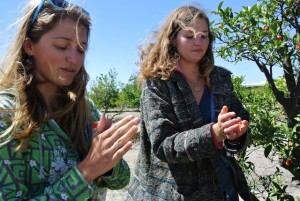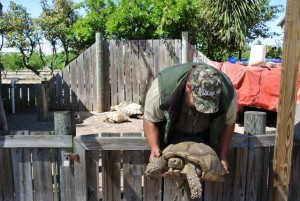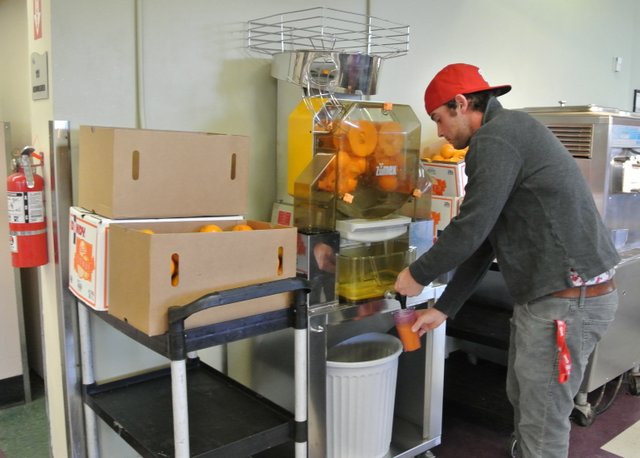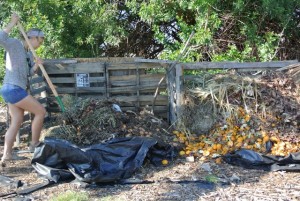Eckerd College Gets Juiced About Farm-Fresh Oranges

Eckerd students Samantha Haskell and Cat Pappas learn how to eat a kumquat: rolling it between their hands to break up the bitterness and then popping the whole thing into their mouths , peel and all.
The Bon Appétit team at Eckerd College in St. Petersburg, FL, wanted students to experience the fresh, seasonal oranges coming from nearby farms. The best way to do that, they decided, was to install a fresh juicing station into the main café. This spring, I joined Eckerd students to follow the journey those oranges take from the farm to their cup.
We started at Mixon Fruit Farms in Bradenton, FL, less than 20 miles from their campus. The Mixon family has been in the orange-growing business for over 75 years. And in Florida, that mostly means the orange juice business, as the vast majority of oranges in Florida are used for juicing. The typically wet Florida climate is responsible for that trend, which makes for heavier, juicier oranges than other orange producing areas, such as California.

Mixon Fruit Farms donated part of their space to the Wildlife Education Center, which is dedicated to preserving and helping Florida native wildlife. The on-farm sanctuary teaches visitors to the farm about native Florida wildlife and invasive species.
Farm co-owner Janet Mixon showed us around the orchard where the oranges for the juicing station are grown. The Mixon family purchased 20 acres of land in the 1920s to start the fruit farm, which has expanded to over 300 acres since then. They grow mostly oranges for juicing and grapefruits, but as we toured the farm we also saw apple trees, tasted kumquats, and heard about dozens of other experimental crops that might be expanded in the future.
Bon Appétit chefs at Eckerd College buy whole oranges from Mixon Fruit Farm to supply the juicing station. The oranges are thrown in the top of the machine, which squeezes them – putting fresh juice into a container for drinking, and separating out what’s left of the orange. That leftover pulp is picked up by students (along with the rest of food waste from the cafes) and composted into soil for the glowing and creatively named student garden, the EC Sol Food Grow-Op.

